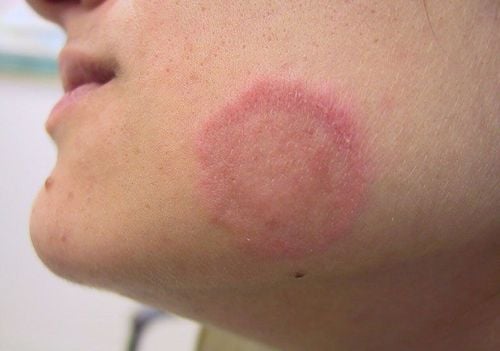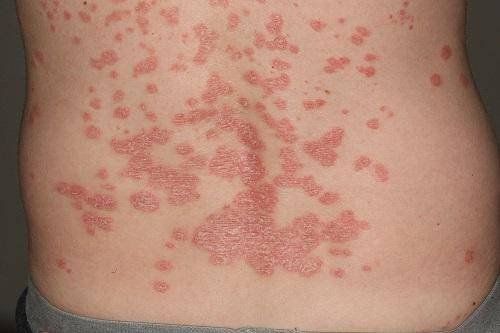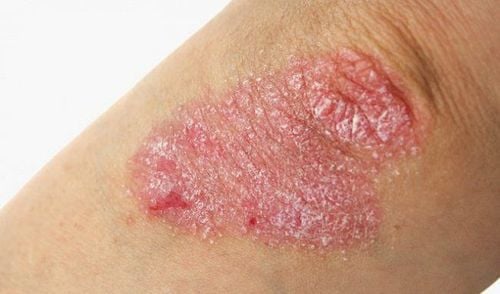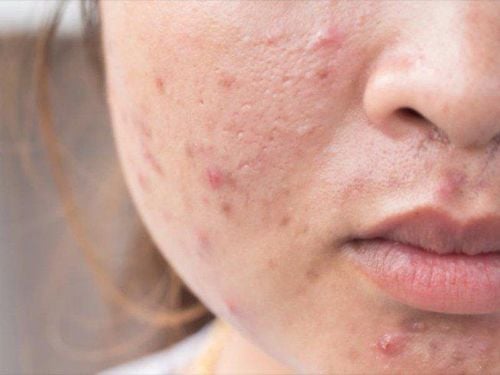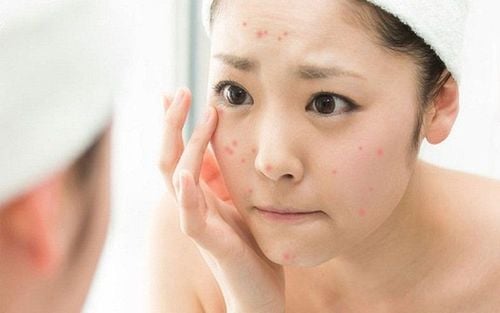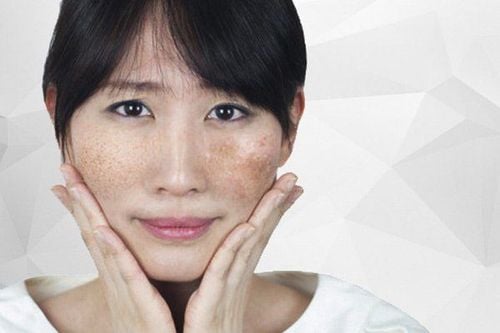This is an automatically translated article.
The article was professionally consulted by Specialist Doctor I Tran Van Sang - Dermatologist - Department of Medical Examination & Internal Medicine - Vinmec Danang International General Hospital.1. What is rice grain disease?
Warts are a skin disease caused by the human papillomavirus (HPV) of the human papillomavirus group. There are more than 100 types of HPV, each of which causes disease related to a separate skin area and organ.Rice grains can grow in any position on the body such as mucous membranes, genital organs, anal area... Rice grains have the main forms as common rice grains, soles of feet, and hands. , flat rice grains, anal rice grains, genitals. In which, common rice grains and flat rice grains are the two most common types of rice grain disease.
1.1 What is common rice grain? Initial signs can be identified at first is the appearance of small nodules, similar to skin color, rough, hard, firm, raised acne surface higher than the surrounding skin surface.
Localization of rice grains can grow anywhere on the skin. The most common places people experience it are on the backs of the hands, feet, fingers and toes. Rice grains do not cause pain to the infected person, unless you squeeze the acne or press firmly on the rice grain, you will feel pain.
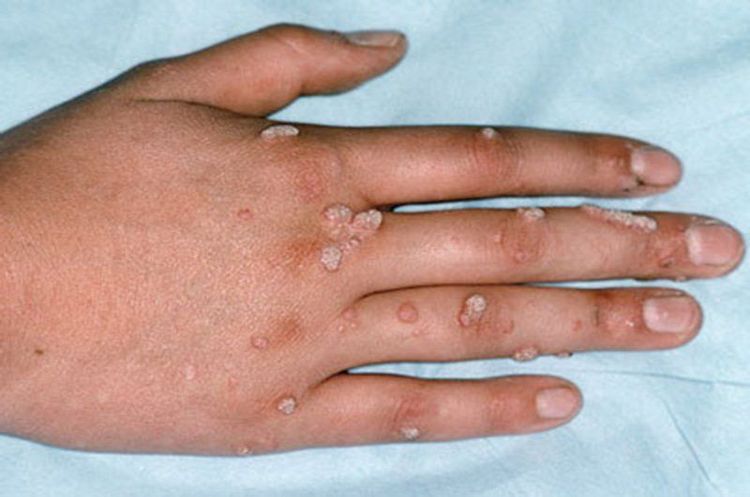
Acne is round or polygonal, skin-colored or slightly yellow-gray, clearly demarcated. The most common location of the flat rice grain is on the face, back of the hand, forearm, lower leg, and upper part of the chest.
2. Is rice grain disease contagious?
Rice grain disease is very contagious. The disease can be transmitted directly through skin contact through small lesions such as scratches or scrapes. These actions will facilitate the entry of viruses. Or transmission of the virus can be indirectly through contaminated objects such as hand tools, sharing shoes, sharing household items, swimming pools or public bathrooms.If the patient scratches or rubs, streaks will form. They spread by scratching, causing skin infections. For female patients who have a habit of shaving their legs, it can spread into dense acne... People with immunodeficiency such as AIDS, organ transplant... will be prone to many rice grains and spread Wider.
Although rice grain disease does not affect life, but if not treated early, for a long time, rice seeds will grow and spread.
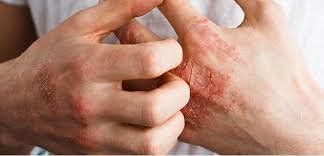
3. Treatment of warts
Using liquid nitrogen to cause depigmentation, this method is effective for dry warts that grow on the face, the soles of the feet or the penis. For warts on the soles of the feet, people can also treat it by cutting the wart, then applying 40% salicylic acid and then dressing. Bandage for about 5 days and then remove, continue to do so for weeks or months to completely treat warts. This method is considered safe, effective and has almost no side effects. You can also use a special cream or gel to apply to warts. CO2 laser therapy is one of the treatment methods for warts that many people choose to remove warts because this method is highly effective, completely treating warts, the location of warts under the nail, Warts grow on the soles of the feet. With sensitive areas that have acne, or large, widespread acne, patients should not arbitrarily treat with folk methods but should go to specialized dermatology hospitals to be examined and treated by a doctor. science to avoid complications.4. Avoid getting warts
To prevent warts, it is necessary to avoid contact, do not scratch or pull the wart because it will damage the existing rice grains, infection they can grow back.Personal hygiene is very clean, eating must be hygienic, full of nutrients.
If you have had a grain of rice, do not self-treat, it is best to go to a reputable medical facility to see a dermatologist for examination and treatment as soon as possible.
Any questions that need to be answered by a specialist doctor as well as customers wishing to treat warts with CO2 laser therapy at Vinmec International General Hospital, please book an appointment on the website to be served. .
Please dial HOTLINE for more information or register for an appointment HERE. Download MyVinmec app to make appointments faster and to manage your bookings easily.





